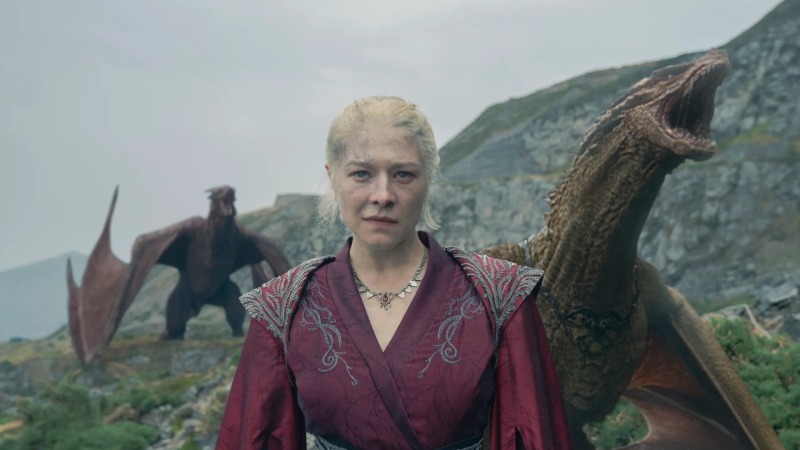With Romantasy on the Rise, Why Is Fantasy TV Suddenly So Sexless?
Photo by Theo Whiteman, courtesy of HBO
While the fantasy genre has long been popular with film audiences and readers around the world, the last decade has also seen the genre booming on television screens. With the debut of HBO’s Game of Thrones in 2011, fantasy TV reset its sights from power fantasies and adventures of the week and borrowed some lessons from prestige TV to target a more mature and adult audience. Thrones wanted to portray an earthier, more human fantasy world, one that didn’t shy away from graphic depictions of sex, which previous adult-aimed ventures like Lord of the Rings never did. The series’ reputation in how it engaged with sex wasn’t necessarily positive, though. Instead of showcasing sexuality in a meaningful way, the show used sex scenes for shock value, often to debase its female characters with sexual violence—scenes that, in many cases, were not present in George R.R. Martin’s novels which the series was based on.
Except for between a few characters, sex in Game of Thrones was rarely a spontaneous act of genuine connection. Instead, it was used as a means for male characters to degrade women in this universe, or even for the show’s writers David Benioff and D. B. Weiss to demean them to the highest degree. Because of this, it seems as if the end of Thrones ushered in a completely sexless era of fantasy television. This seems to have come to a head with the release of the series’ prequel, House of the Dragon, in 2022. Before the show even premiered, then-writer and showrunner Miguel Sapochnik made it clear that the series would “pull back” in regard to the amount of sex it would showcase.
That same year, this was contrasted with the premiere of AMC’s Interview with the Vampire, which transformed Anne Rice’s subtextual examination of human sexuality into actual text. In the opening episode of the series, Louis (Jacob Anderson) and Lestat (Sam Reid) float in the air while Lestat sucks at Louis’ neck, hips mashed into his companion’s buttocks. With this first episode, it felt like on-screen gay sex was being filmed and portrayed in a bolder way than it ever had been before. Despite this fantastic opening and a sexually-charged first season, the series’ second season in 2024 was nearly devoid of sex. While each interaction in the series is erotically charged, the second season lacked the sensuousness that made the first feel so fresh.
With romantasy quickly becoming the most popular book genre of the decade, it seems strange that on-screen fantasy stories are becoming less willing to showcase sexual acts. The genre, which consists of novels set in fictional lands where romance is a central element to the plot (almost more so than thorough world building or magic systems), is undeniably the reason for sales of science fiction and fantasy books increasing by 41.3% between 2023 and 2024. These novels often engage with sexuality and sexual acts in a way that occasionally borders on erotica, coined by some Booktokers as “spice.”
Fantasy has never truly been an overtly sexual genre when it comes to literature. Just as Thrones transformed television, George R.R. Martin’s book series that inspired it was also ahead of its time. Unafraid to go into detail regarding sexual relations his characters had, Martin’s work is also incredibly romantic in language, emulating the writers who were gone long before he came into prominence, and breathing some life back into the genre. While fantasy is mostly known for its shields and swords, at its core is a genre that is meant to explore interpersonal relationships between characters, often those who are romantically attracted to each other. If anything, it feels like romantasy and its readers are simply catching up with the sexual fluidity that Martin had a hand in infusing the genre with once again.
-

-

-

-

-

-

-

-

-

-

-

-

-

-

-

-

-

-

-

-

-

-

-

-

-

-

-

-

-

-

-

-

-

-

-

-

-

-

-

-








































